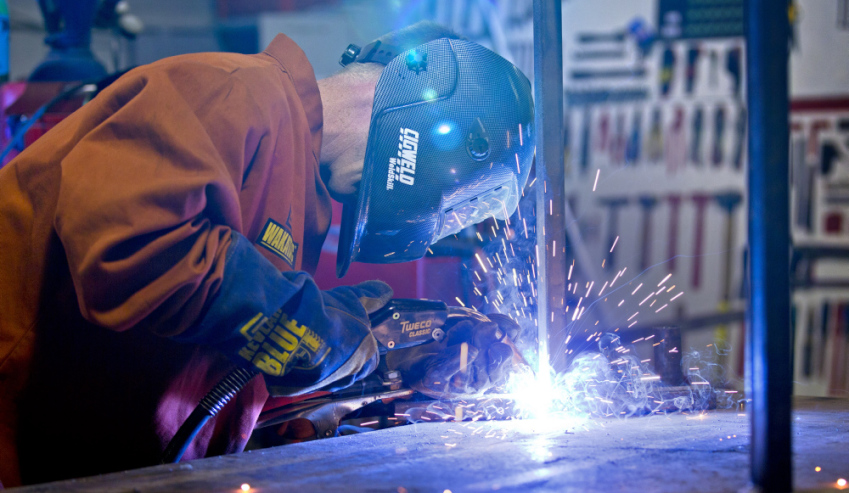In this edition of On Point, CEO of SYPAQ Systems Amanda Holt joins Phil Tarrant to share her advice for SMEs looking to navigate and capitalise on the Commonwealth government’s defence industry export agenda.
With a role on the CDIC advisory board, Holt unpacks both her position within the organisation and the role that the board plays in the defence sector. She also shares her plans for SYPAQ going forward.
Phil Tarrant: [With] a looming federal election and potentially a leadership change, how does your business approach that?
Amanda Holt: Look, it's been quite an interesting one. The political dynamic for any business operating in the government and defence sector is obviously always challenging. The last few years, really since the release of the 2016 white paper, the Defence Industry Policy Statement, and the supporting policies and statements that have come through since then have been remarkable for SYPAQ. It really has positioned the culture around Defence and government to address not only the value that can be generated by supporting SMEs, but the export potential, the innovation potential, and the ability to deliver far more capable and agile solutions into the warfighter. So, we're obviously very hopeful that should there be a change in government that the policy initiatives that are starting to show some real benefit, both into the industry development side but also into some of the capabilities being delivered to the warfighter, will be continued.
Phil Tarrant: What's your view on the export agenda being pushed by Defense Minister Christopher Pyne? He's a big advocate, rightfully, of trying to project our domestic talent in manufacturing and other services in the defence space to turn us into a top 10 defence exporter. Do you reckon we can achieve that milestone?
Amanda Holt: I think exports is something that's been traditionally challenging for SMEs in the defence sector in Australia. We make up such a large part of the defence industry down here, and a lot of our focus has been on how we can support primes through excellent initiatives like the Global Supply Chain program. One of the challenges though is for services based businesses, which is what SYPAQ's been for most of its last 25 years, but also for the emerging technology that we've been working towards over the past five years in earnest is, how do you actually try and break into those export markets?
We've had fantastic support from Team Defence Australia over the last seven years as we started looking at how we could start to build a bit more of a global brand. A big part of the, I guess, challenge that you faced as an SME when you do go under Team Defence Australia delegation is the first thing you're asked is, "Are the ADF using it?" And if the answer is no, they're immediately disinterested. They're polite, they're helpful, but it's not the same as when you can say, "Yes".
And so, some of the initiatives we've seen put in place in the last few years, the Defence Innovation Hub in particular, which has been spectacular for SYPAQ, means we can now sit there and say we have Army and Air Force investing in some of the technologies. We're developing it, they trialling it, they're working with us, and as a result, the reception we have and the potential we have to then export direct to the end users internationally, it's gone absolutely through the roof. It's changed the game for us.
Phil Tarrant: It's not a bad accolade. Once our ADF pick-up something because globally our ADF is perceived as someone where the procurement process is quite rigorous. So if the ADF chooses to use your stuff it's typically pretty good, right?
Amanda Holt: Absolutely, and with a few of our technology partners, particularly out of the US, when we do start to work through some of the tender processes with them, they are blown away by the level of rigour and detail that's required often even just for an RFI down here. So you couldn't be more accurate. The justification, the standards compliance, and the utility, and particularly the safety aspects that are so well managed by the ADF procurement policy, it is a big tick for us.
Phil Tarrant: You sit on the advisory board for the CDIC, how long have you been on that board? And what's that role entail?
Amanda Holt: That was essentially stood up at the end of 2015. So we've all been there for a little while now. We're a mix of industry membership, we've had a few rotations come through. People from primes, people from small and medium enterprises like myself, and in general trying to make sure we get a good breadth of nature of business as well. So we're obviously experts in C4ISR. You interviewed Karen Stanton earlier in the year. Experts in heat treatment, providing that critical capability into so many of our industry players here in Australia. So very different businesses. We don't tend to be there discussing our absolute niche. It really is trying to get that spread of voice and spread of experience to try and inform a number of the different policies that have been released in the last little while.
You can listen to the full podcast with Amanda Holt, chief executive of SYPAQ Systems, here.


